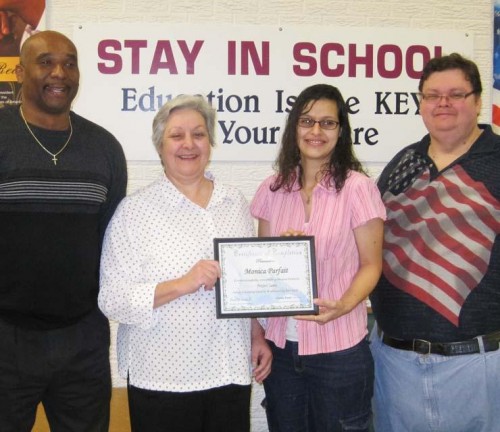
T’bonne’s Bayou Grace helping locals succeed
February 9, 2010Thursday, Feb. 11
February 11, 2010Two recent reports on education issues – one that ranks states’ public school systems and another that highlights innovation and culture-change concerning career/technology centers – offer reasons for some celebration as well evidence for needed change.
It is important to salute Louisiana’s improvement in “Education Week’s Quality Counts 2010” report even as we resolve to address the areas that fall below desired performance. It is also imperative to recognize – as highlighted at last week’s “Technology Centers That Work” forum – that there must be much more emphasis placed on academics in preparing high school students in career and technology centers.
The good news is that Louisiana public schools’ overall score of 75.8 in the Quality Counts survey has lifted the state from its 35th ranking last year to 27th this year. It’s still a “C” but is up from 74.4 last year and it demonstrates a move in the right direction.
In other positive news from the report, Louisiana earned an
“A” for the standards it sets for public schools and its efforts
to measure success and hold schools accountable. In fact, listed at
third-place, Louisiana was one of only four states nationally that
had near-perfect scores on school
Standards/Assessments/Accountability policies. This area has been a
source of pride for a number of years in the Pelican State.
In the Teaching Profession category, which examines 44 indicators of good state policies that affect classroom learning, Louisiana schools also ranked third place nationally, and the state got a “B” for its efforts to improve and maintain teacher quality. It is important to celebrate the successes and to thank all those whose hard work has helped move Louisiana students forward.
That said, it is also critical business to address the less-than-stellar findings, including two grades of “D” for funding of schools and student achievement as well as a “C-minus” in “Chance for Success,” which measures family education and parents’ education among other factors.
We are encouraged by state Education Superintendent Paul Pastorek’s response to this showing, which he said, “emphasizes the need for us to push forward with a sense of urgency so that another generation of our children is not left behind.”
Another broad area where change is needed was highlighted in the Technology Centers That Work – TCTW – forum held last week in Jacksonville, Fla. There the Southern Regional Education Board gathered education leaders and educators from 14 states to work toward major improvements in career-technology centers in high schools.
Statistics reported at the forum showed a bit of a disconnect between career-center students’ expectations for postsecondary education and those of their teachers. An SREB survey showed that 70 percent of TCTW students in 2008 intended to attend college or advanced career preparation, yet 83 percent of teachers said their main goal is to help students merely prepare for work.
The message from many of the educators sharing success stories in Jacksonville is that the old mentality surrounding the career-path-rather-than-college-bound student won’t work for 21st Century challenges. Blended career and academic courses are critical as schools prepare students to enter a wealth of new fields – from “green” renewable technology to cyberinfrastructure and more.
In Louisiana and beyond, the lessons learned from national rankings like Quality Counts and from innovative programs like TCTW must be followed by action items – to meet the needs of students, families, the workplace and the changing economy.
– The Times, Shreveport, La.








